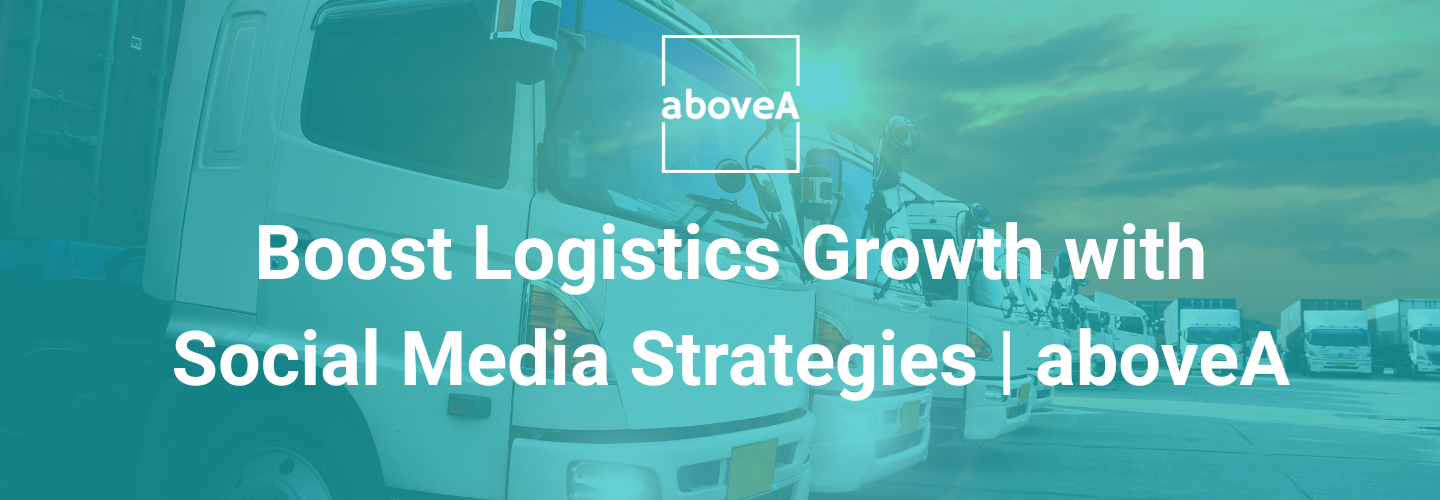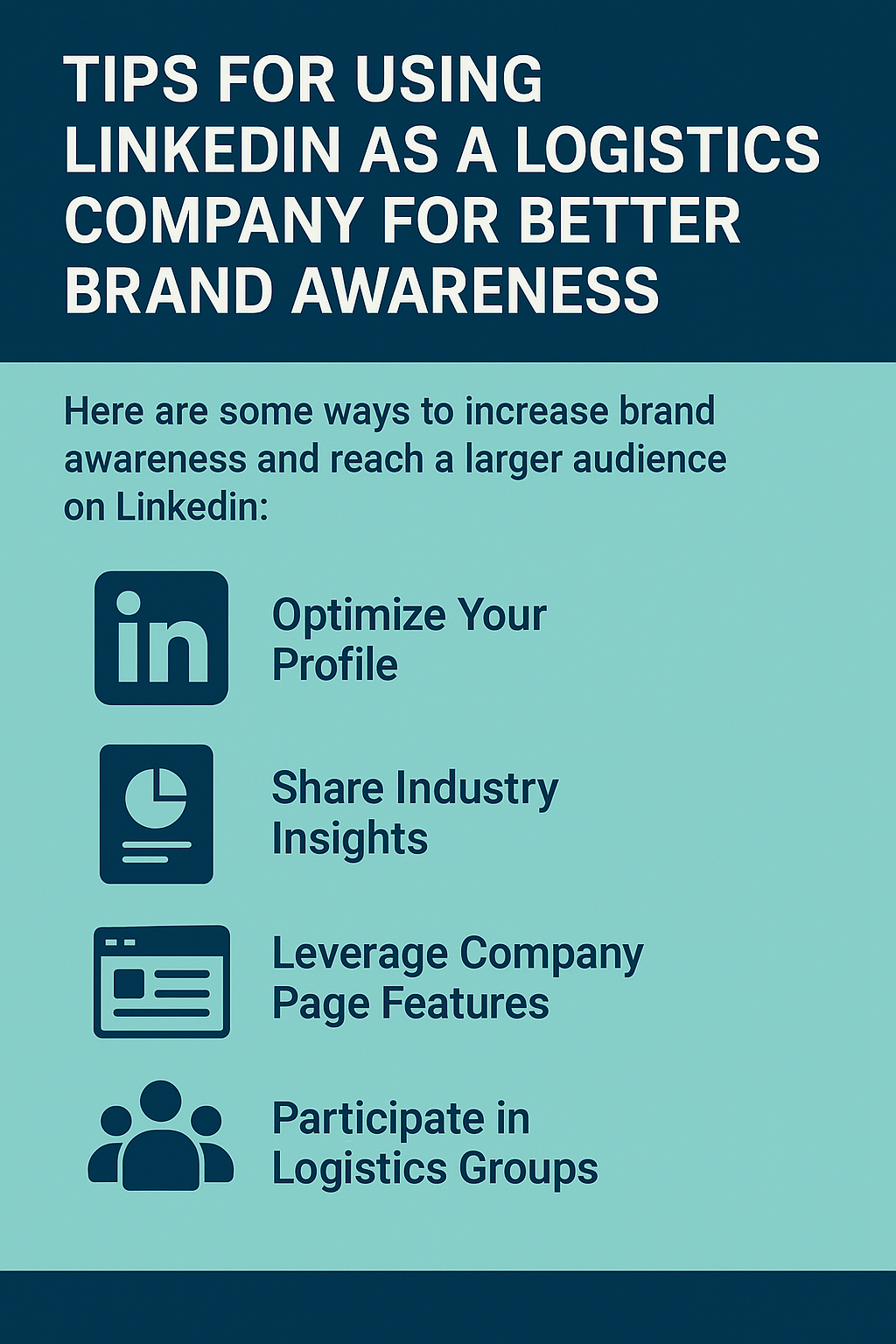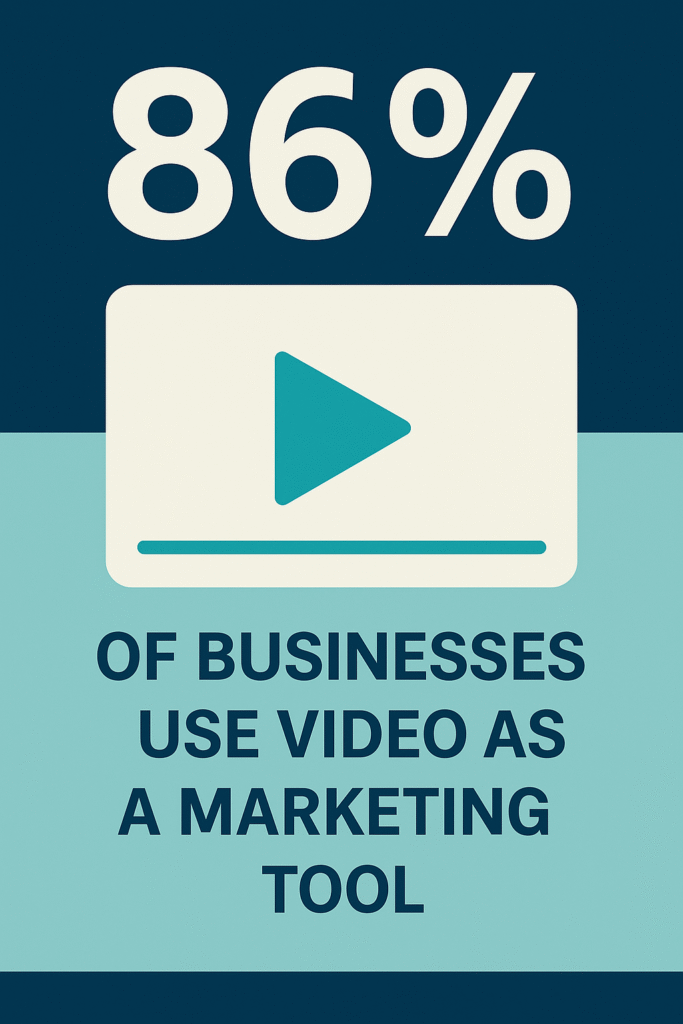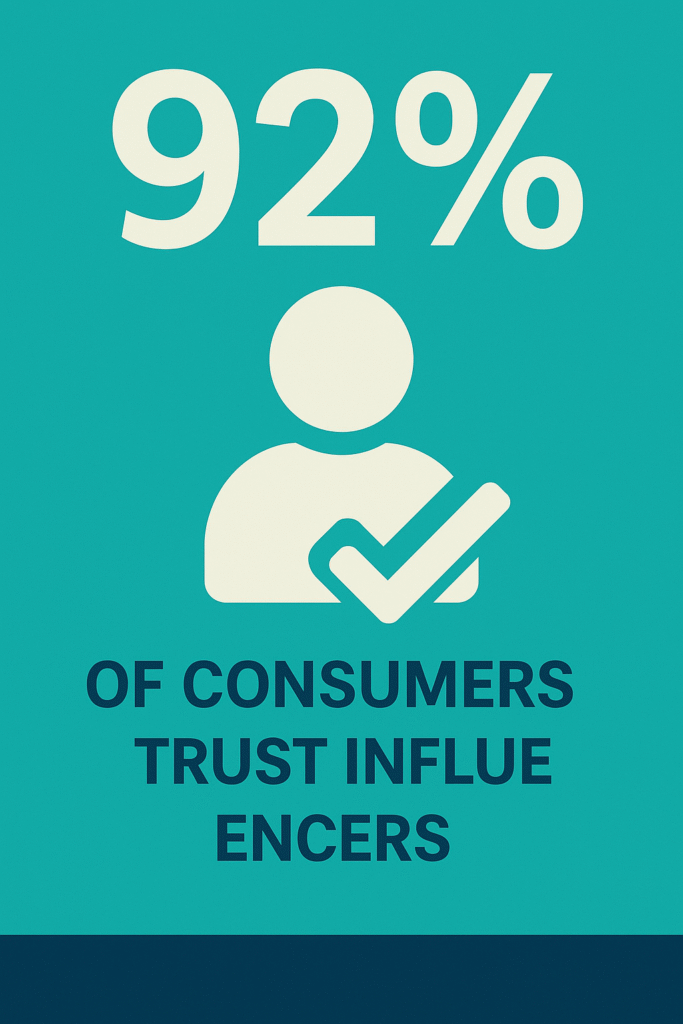
Using Social Media for Your Logistics Company: A Game-Changer for Growth and Engagement
- Last Time Updated: 25th of January, 2026
In today’s fast-moving digital world, social media is more than just a place to share photos or quick updates. For logistics companies, it offers an incredible opportunity to build strong relationships, show off expertise, and connect directly with clients and partners. Many logistics businesses still overlook this powerful tool, but using social media well can boost your brand awareness, attract new customers, and grow your company faster than traditional marketing alone.
Why Social Media Matters for Logistics Companies
Social media is not just about posting pictures of trucks or warehouses. It’s about telling your company’s story in a way that connects with people. Whether you want to attract new clients, hire top talent, or showcase your industry knowledge, social media gives you a platform to do it.
Glossier’s Micro-Influencer Strategy
Sharing stories about your team, day-to-day operations, or customer success builds trust. When people see the real people behind the logistics, it makes your company more relatable. Trust is essential in logistics because customers want to know their goods are handled by professionals who care.
Glossier’s Micro-Influencer Strategy
Different social media platforms serve different purposes. Choosing the right ones is crucial to reaching your target audience effectively. For example:
- LinkedIn connects you with business professionals, decision-makers, and potential partners.
- Facebook and Instagram reach broader audiences, including customers and job seekers.
- YouTube allows you to share detailed videos showcasing your services and industry insights.
- Twitter works well for quick updates, news, and customer service.

Establishing Your Social Media Presence
Before diving into posting, you need a clear plan and strong branding across platforms.
Pick the Right Platforms
Not every social media site fits your company’s goals. If your focus is B2B relationships, LinkedIn should be a priority. Want to attract younger talent or share visual content? Instagram and Facebook are great choices. YouTube is ideal for longer, in-depth video content.
Consistent Branding is Key
Make sure your logo, company colors, and messaging look consistent everywhere. This builds recognition and professionalism.
The Power of Organic Content
Organic content means posts you share without paying for ads. This is the foundation of any successful social media strategy.
What to Post Organically?
Aim for a mix of content types:
- Educational posts: Share tips about supply chain optimization, freight management, or warehouse efficiency.
- Behind-the-scenes glimpses: Show your team at work or your operations in action.
- Emotional stories: Highlight team achievements or customer success stories to humanize your brand.
What to Post Organically?
Organic posts keep your company visible and help build a community. When followers regularly see useful and engaging content, they remember your brand. Over time, this can lead to inquiries and new business opportunities.
Boosting Reach with Paid Social Media Campaigns
Paid ads on social media are a powerful way to amplify your message quickly and reach the right audience. Platforms like LinkedIn and Facebook offer detailed targeting options, allowing you to focus your ads by industry, job title, location, and interests. This ensures your campaigns reach decision-makers and businesses most likely to need your logistics services.
Paid campaigns work best when used strategically; for example, when launching new services or products, entering new markets, or promoting special offers and events. It’s important to remember that paid ads should complement, not replace, your organic social media efforts. Using both together creates the strongest overall impact.
| When to Use Paid Campaigns | Purpose |
|---|---|
| Launching new services or products | Quickly create awareness and interest |
| Entering new markets | Target potential clients in new areas |
| Promoting special offers or events | Drive immediate engagement and leads |
Boosting Reach with Paid Social Media Campaigns
To capture and hold the attention of your audience on social media, your logistics company needs to offer a diverse mix of content formats. Different types of content appeal to different people and learning styles, and using variety keeps your channels fresh and interesting. This variety also boosts engagement, which is key for expanding reach and building lasting relationships.
Use Different Formats
Videos are among the most powerful content types. They let you show how your logistics processes work in real-time, such as packaging, loading, or route optimization. Tutorials on freight management or tips for reducing delivery times not only educate but also position your company as an expert. According to Wyzowl, 86% of businesses use video as a marketing tool, and viewers retain 95% of a message when watched in a video versus 10% in text. This means video can dramatically increase brand recall and trust.
Images are easy to consume and share. Posting photos of your fleet, warehouses, or your team on the job highlights your operational scale and humanizes your company. Visuals make your business more relatable, increasing followers’ emotional connection.
Infographics condense complex data into easy-to-understand visuals. For logistics, infographics can illustrate supply chain efficiency, delivery timelines, or cost-saving statistics. They are highly shareable and improve information retention, helping position your company as knowledgeable and transparent.
Case studies tell compelling stories of how your company solved real-world logistics challenges. Sharing detailed client success stories builds credibility and demonstrates your problem-solving capabilities to potential customers. According to the Content Marketing Institute, case studies are among the most effective B2B content types.

Use Different Formats
Live webinars and Q&A sessions on LinkedIn or Facebook create direct engagement. These real-time formats allow prospects to ask questions, clarify doubts, and experience your expertise firsthand. Interactive events also build trust and foster a community around your brand.
In summary, diversifying content formats and using interactive sessions helps your logistics company connect better with audiences, increase engagement, and stand out as a leader in the industry.
Hashtags and Influencer Collaborations
Using hashtags is a simple yet powerful way to boost your logistics company’s visibility on social media. Hashtags categorize your posts, making them discoverable by users interested in specific topics. For logistics, relevant hashtags include #logistics, #supplychain, #warehousing, and #shipping. Including these helps your content reach professionals searching for industry-related posts. Studies show that posts with hashtags get about 12.6% more engagement than those without. However, avoid hashtag overload; aim for 5 to 10 focused tags per post, combining broad and niche terms to maximize reach.
In addition to hashtags, partnering with industry influencers can greatly amplify your message. Influencers are trusted experts with loyal followings in logistics and supply chain sectors. Collaborations, such as joint webinars, guest posts, or shared social content, introduce your brand to new audiences authentically. According to Nielsen, 92% of consumers trust influencer recommendations more than traditional ads. This trust helps build credibility and attract potential clients.
By combining targeted hashtags with influencer partnerships, your logistics company can increase discoverability, build trust, and grow its audience effectively and organically.

Social Media for Recruitment
Using social media for recruitment is a smart way to find skilled, tech-savvy employees for your logistics company. Here’s how to leverage it effectively:
Showcase Company Culture
Share engaging posts about your work environment, team achievements, and employee stories. Highlighting a positive, inclusive culture attracts candidates looking for growth and a supportive workplace.Post Job Openings
Use LinkedIn and Facebook to announce logistics job vacancies. These platforms help you reach both active job seekers and passive candidates who aren’t on traditional job boards but are open to new opportunities.Engage with Candidates
Respond promptly to inquiries and comments on your recruitment posts. Interaction shows your company values talent and creates a positive impression.Use Targeted Ads for Hiring
Run paid campaigns targeting specific skills, locations, and experience levels to reach qualified logistics professionals efficiently.
By combining these strategies, your logistics company can build a strong employer brand and attract top talent through social media channels.
Leveraging Social Media Data for Business Insights
Effectively using social media data can transform how your logistics company understands and serves its customers. Here’s how to make the most of it:
Understand Your Audience
Track which posts get the most likes, shares, and comments. This reveals what topics and content resonate, helping you focus on what truly interests your clients and prospects.Manage Your Reputation
Quickly respond to both positive feedback and complaints. Timely, thoughtful replies demonstrate that your company values customer opinions, boosting trust and satisfaction.Tailor Your Services
Analyze engagement data to identify customer needs and preferences. Use these insights to refine your service offerings and messaging, ensuring they align better with market demands.
By leveraging social media data, your logistics business can make smarter decisions, improve customer relationships, and stay ahead in a competitive industry.
Summary: Key Steps to Social Media Success for Logistics Companies
- Choose the right platforms based on your goals and audience.
- Post a regular mix of educational, entertaining, and emotional organic content.
- Use paid campaigns to reach targeted decision-makers and expand your presence.
- Create varied content like videos, infographics, and live sessions to engage your followers.
- Leverage hashtags and influencer partnerships to increase discoverability.
- Utilize social media for recruitment by highlighting your company culture and job opportunities.
Analyze social media data to understand your audience and improve your services.
Final Thoughts
Social media is no longer optional for logistics companies. It’s a vital tool that can build brand authority, generate leads, engage customers and employees, and drive growth. By combining organic content with paid advertising and interactive engagement, your logistics company can stand out in a competitive market and build lasting relationships. Start building your social media strategy today and watch your business take off.
Meet the Author

Karina Kavaleuskaya
She combines a passion for storytelling with a strategic mindset to help brands grow, stand out, and connect deeply with their audiences. Through thoughtful, impactful writing, she turns complex ideas into clear, engaging narratives that drive results.

